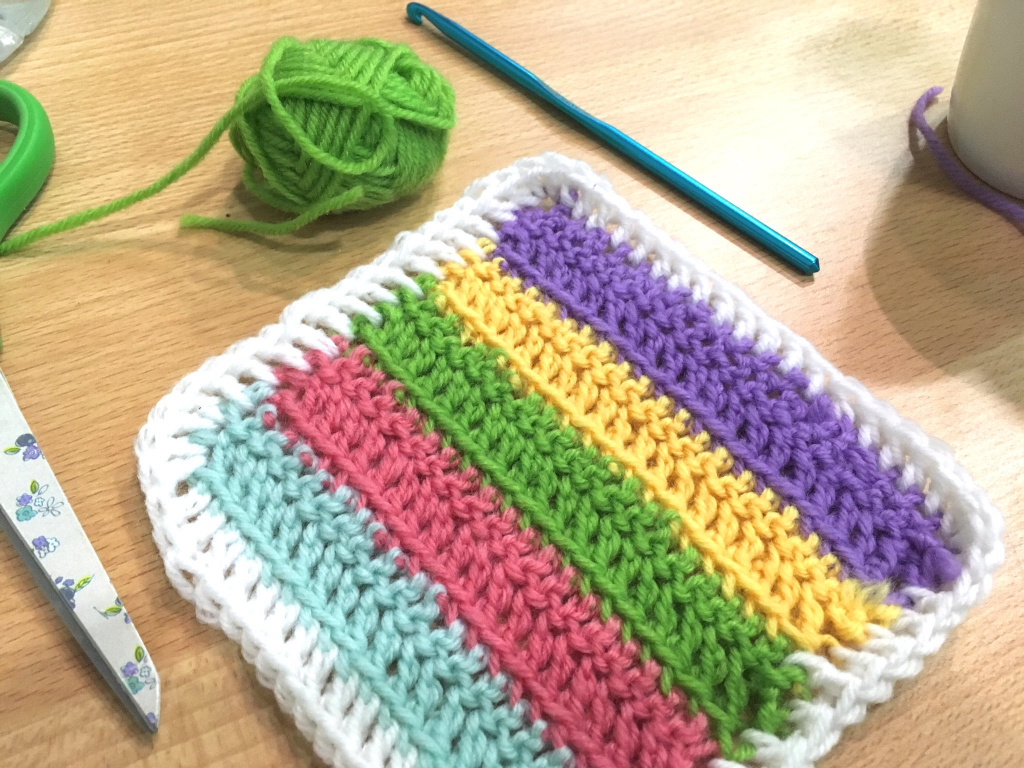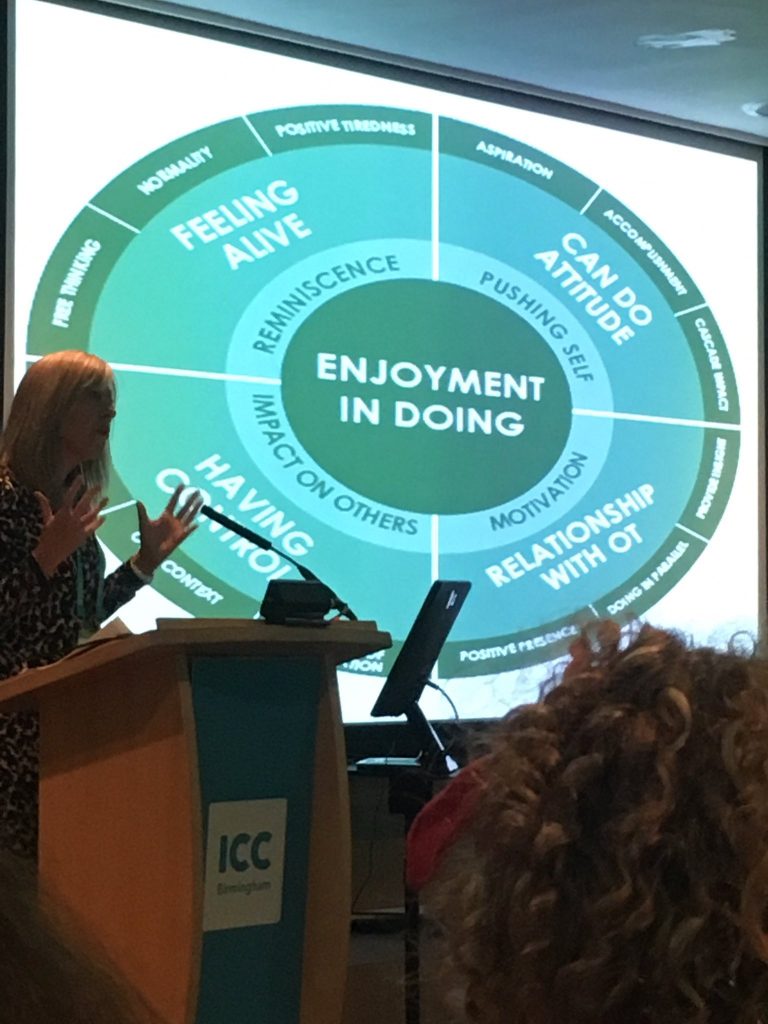In our latest blog, first year student Laura Wendon shares her experience:
Why should an occupational therapy student attend the conference?
It’s worth knowing that everyone is in the same boat at conference. Whether you’re a student, qualified, non-OT professional, or retired – everyone is there to share and learn. To me, it felt more like a huge family reunion. I enjoyed the awkward hellos from people you’ve only spoken to on social media and discussing what you learned that day; the excitement of meeting OT royalty and getting a bit flustered when they agree with something you say; then connecting with people who’ve graduated from your university and finding out what they’re doing now. Everyone is friendly, welcoming and willing to share their occupational therapy journeys.
What were your 3 key take home points?
1. Connecting theory and practice aids learning:
I’m sure I’m not the only one who appreciates an enthusiastic speaker. That’s one of the reasons Dr Helen Carey’s (Glyndwr University) session on ‘Applying the Model of Doing’ stood out to me. Having reflected, I knew I needed to improve my theoretical knowledge for uni and relating it to practice helps me do that. This model highlights the enjoyment of occupation and ties together fundamental factors for engagement in occupations. Relating this model to Dr Carey’s second session (sharing her work with people with Motor Neurone Disease) enabled me to connect theory and practice.I also enjoyed her funny anecdotes, which helped keep me engaged.
2. OT core values and skills are transferable:
I like planning for the future. The sheer number of notebooks I’ve filled is a little ridiculous. Therefore, when faced with the veritable smorgasbord of OT practice areas at conference, my normally very structured mind was blown. However, a handful of sessions (and some sage advice from many wonderful OTs on twitter) enabled me to see that the core occupational therapy values and skills I’m acquiring at university are all transferable within the vast number of practice areas. The specialist knowledge comes later.
Jeni Woods and Lara Cowpe (RCOT specialist section for Oncology and Palliative Care) highlighted that generalist OTs regularly work with people receiving palliative care but are often limited in their roles to reducing hospital admissions. This needs to be challenged. Occupational therapists can do so much more to support people with life-limiting conditions. This helps to brings our core Occupational Therapy values back into focus
Ruth Nightingale (Great Ormond Street Hospital) spoke on the transition to self-management for young people with chronic kidney disease (CKD). Currently there are no therapists working in this area, very few OTs work with people who have CKD in an outpatient setting. However, this obvious gap in service is slowly being addressed (see the May version of OT News). It was exciting to learn how Occupational Therapists can bring their values and skills into this area of practice.
3.There’s always more to learn:
York St John’s very own Stephen Wey and his Student as Co Researcher (SCoRe) students led an inspirational seminar on ‘Playing Together’. A wonderful end to an awesome two days at RCOT 2019. Seeing ‘interdependence’ as a central component to relationships, and how it fits with the concept of ‘co-occupation’, reinforced my previous learning from university. Through the case study, I appreciated how they related on the micro-level. This also propelled me to think about meso- and macro- levels of interdependence. I’m looking forward to researching this, when I start to tackle my list of things to read. The learning certainly doesn’t stop when conference ends.
Laura concludes that her experience “improved my sense of well-being” by
#Doing crochet at the Stop. Do. Relax. Zone.
#Being a student taking notes, reflecting, and meeting other students.
#Becoming an OT I found out I’d passed the first year of my BSc Occupational Therapy degree on day two.
#Belonging The atmosphere and people at conference all helped cement occupational therapy into my identity.


